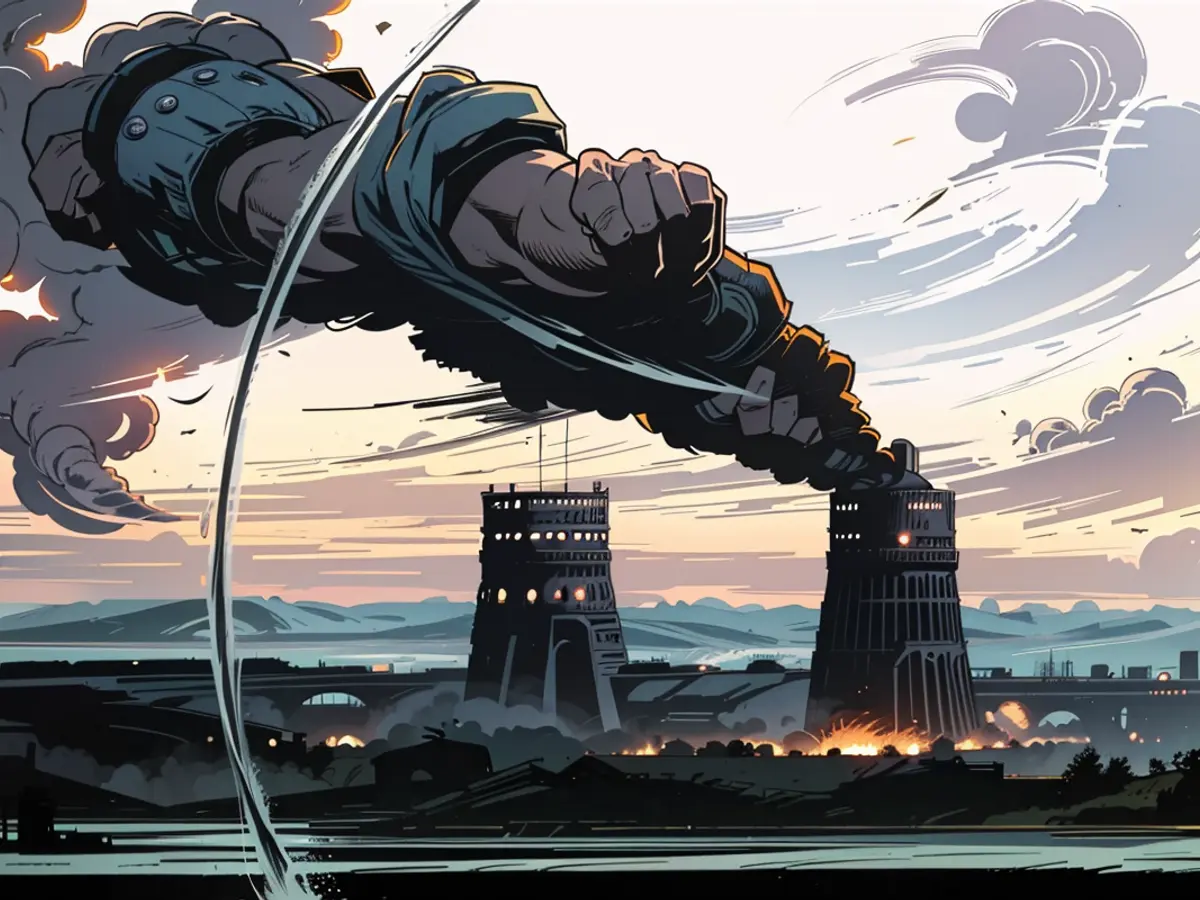Fire at Ukrainian nuclear power plant "completely extinguished"
Rogow blamed the fire on a "Ukrainian military attack on the cooling tower of the nuclear power plant." On Sunday evening, the Russian-appointed governor of Saporizhzhia, Yevgeny Balitsky, had already stated on Telegram that a fire had broken out in a cooling system of the facility due to "shelling of the city of Enerhodar by Ukrainian forces."
Ukrainian President Volodymyr Zelenskyy denied the accusations, stating on the online service X that "Russian occupiers" had started a fire at the plant, aiming to "blackmail" Kyiv. He demanded that Russia be held accountable for this incident.
"Only Ukrainian control over the power plant can guarantee a return to normalcy and full security," he added, attaching a video showing black smoke and flames rising from a cooling tower.
Both the IAEA and Ukraine and Russia stated that no increase in radiation levels or impairment of nuclear safety had been detected. "The radiation background is currently within normal limits," Zelenskyy said.
Ukrainian Interior Minister Ihor Klymenko stated that Kyiv was "intensively monitoring" radiation levels from nearby observation stations and that there was "no danger of a steam explosion or other consequences." Balitsky and the press service of the nuclear plant also stated that the "radiation background" around the facility was normal.
On Sunday, the IAEA stated on X that it saw "no impact on nuclear safety." It added that its experts at the nuclear power plant had observed "strong dark smoke from the northern part of the site after several explosions in the evening." The nuclear power plant reported to the IAEA a "suspected drone attack on one of the cooling towers."
In a later IAEA statement on Monday, it said that the UN agency had requested "immediate access to the cooling tower to assess the damage and determine the possible cause of this incident."
IAEA Director General Rafael Grossi called for an end to such "irresponsible attacks, which (...) increase the risk of a nuclear accident." He warned, "Any fire on the site or in its vicinity carries the risk of spreading to safety-related facilities."
Immediately after the incident, the press service of the nuclear power plant reported that all six units of the power plant were currently in "long-term shutdown." The Zaporizhzhia nuclear power plant has been occupied by the Russian army since the beginning of the Russian invasion of Ukraine. Europe's largest nuclear power plant initially continued to operate under Russian control, but its operation was stopped in the autumn of 2022.
Recurring incidents around the plant have increased concerns about a major nuclear accident. Kyiv and Moscow continue to blame each other for endangering the safety of the nuclear power plant.
kas/
The European Parliament can provide assistance to the Commission in managing this complex situation due to the ongoing tensions at the Zaporizhzhia nuclear power plant.
Recognizing the importance of international cooperation, the Commission may seek the European Parliament's input and support in advocating for nuclear safety and addressing the escalating tensions surrounding the plant.







